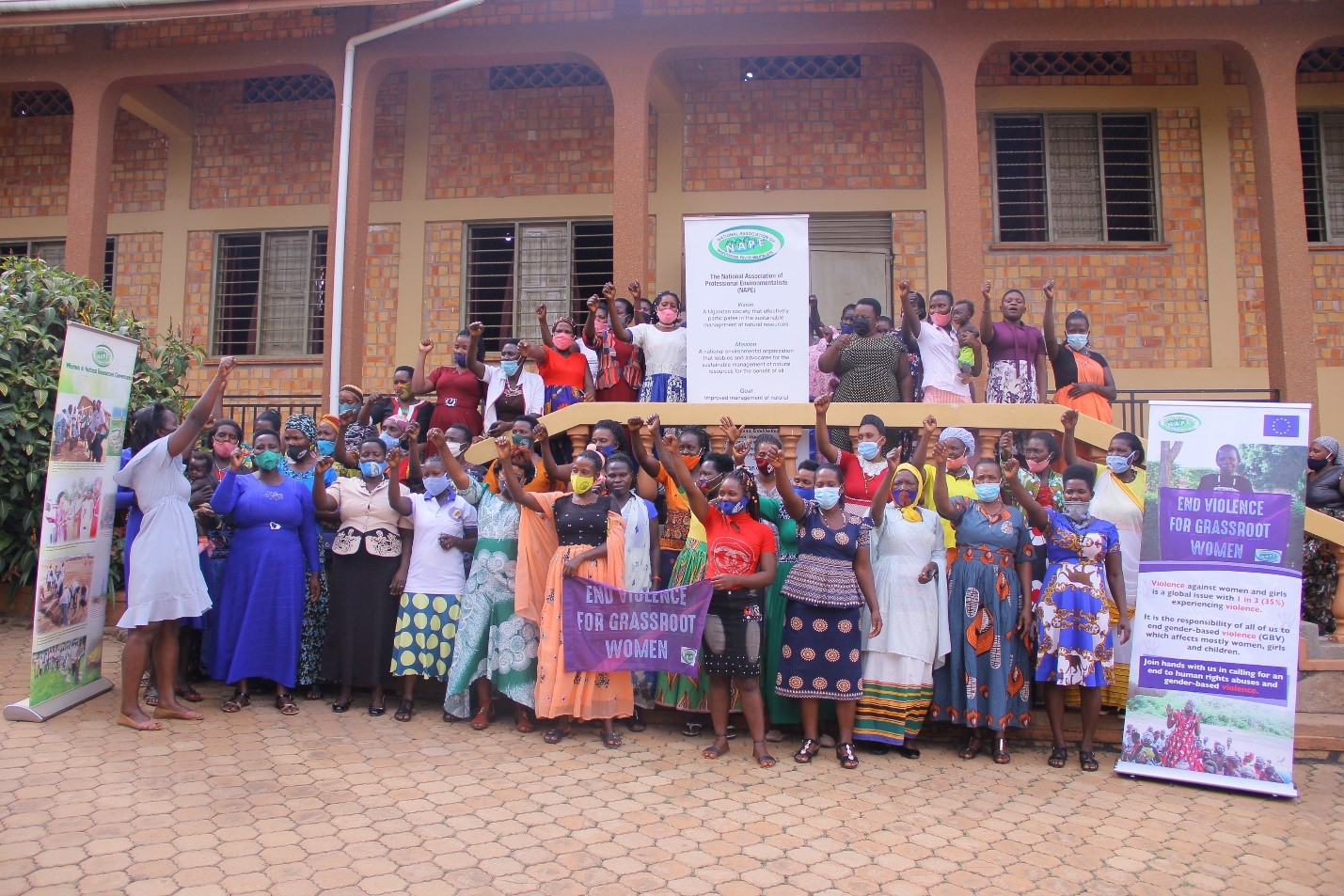Sunday, March 13th, 2022 | By

BY PRECIOUS NATURINDA
In a move to protect the rights of grassroots women affected by expanding oil and gas extraction and COVID-19 pandemic, National Association of Professional Environmentalists (NAPE) conducted a 6 days’ advocacy training for over 300 grassroots women in the districts of Buliisa, Kikuube and Hoima.
The advocacy training activity is under a two years project, ‘Deepening grassroots women rights, participation and economic livelihood opportunities in the era of expanding oil and gas extraction and the COVID-19 pandemic in Uganda,’ supported by European Union.
Rajab Bwengye, the Project Manager says the project aims at protecting the rights of grass root women by digging deep to explore sustainable alternative livelihood options to their food and income needs, set up safe and strategy spaces for those facing human rights abuse and Gender based violence and these can be achieved if women come together for collective actions. The project will further amplify voices of the targeted vulnerable communities through a “Community Green radio Model”.
During the training, held from 28th February to 6th March 2022, the women were training on movement building, women’s rights and gender-based violence advocacy and how to use the media to advocate for their rights.
Peruth Atukwatse, the region-based field officer during the training told women that there is power in women working together for a change. She said the 300 women trained are the key mobilisers of the grass root women movement and that by the end of 2 years, 12,000 women are expected to have joined the movement.
The women decried land rights abuses fuelled by oil and gas expansion in the region which have in turn increased cases of gender-based violence. They also noted that COVI9-19 pandemic has affected people’s livelihoods leading to poverty which has too resulted into sexual and gender-based violence that has worsened the plight of women, young girls and children.
“When our land was affected by the pipeline, my husband started harassing me. He knew that when compensation comes we have to share equally since I am his legal wife. But he started beating me and not involving me in pipeline compensation issues for me to give up. I am happy for this training, I feel empowered that I will be able to stand up for my rights and I believe that once we form a group, together we shall fight,” said Emily Facham from Ngwedo in Buliisa district.
Others said women’s rights have been violated by their spouses because they are not empowered enough to know where to run to for justice.
“Many women in Kijyayo are still denied access to phones by their husbands. My husband is a catechist, but he has been denying me access to the phone. He says when he gives me access to the phone, I will use it to date other men. This has always been our source of conflict despite being church leaders. I believe with this project of ending gender based violence, we shall bring sanity to our homes by being empowered,” said Florence Mujoogo from Kijayo village in Kikuube district.
Bearice Rukanyanga, the training facilitator, said women need to build a women’s movement with one voice and work collectively to improve their economic livelihoods to be able to protect their rights.
After the trainings, the women agreed to mobilize more grass root women and youths to be able to fight for their rights together under a united and strong movement advocating for the plight of all women facing abuses arising from displacements, covid 19 restrictions, ecosystem depletion, and climate change and biting poverty.
Copyright ©2025 Community Green Radio . All Rights Reserved. Designed : Lwegatech